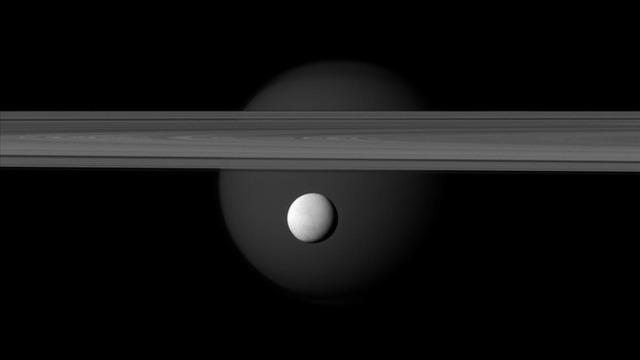According to The New York Times, research led by planetary scientist Frank Postberg from the Free University of Berlin has discovered the last element necessary for life on Enceladus.
Based on data collected by the US National Aeronautics and Space Administration’s (NASA) Saturn exploration vehicle Cassini in 2017, the research detected the presence of phosphate in the ocean on the rocky ground beneath the ice-covered moon. Phosphorus element in the phosphate compound is found in the structure of DNA.
Carbon, hydrogen, nitrogen, oxygen and sulfur have been found on the satellite in the past.
IT MAY BE THE BEST PLACE FOR LIFE OUTSIDE THE WORLD
The discovery of phosphorus and the fact that Enceladus had all the elements necessary for life raised the possibility that the satellite would be the “most ideal” place for life outside of Earth.
Earlier research suggested that because phosphorus is rare in extraterrestrial oceans, life could not exist elsewhere in the solar system or galaxy.
Postberg said the discovery could be a sign of potential life on extrasolar moons and planets with subsolar oceans, such as phosphate-rich Jupiter’s moon Europa or dwarf planet Pluto.
In the research, it was emphasized that a larger data sample should be analyzed in order to understand whether Enceladus could be a potential host for humanity.
PHOSPHORUS, WHY IS IT IMPORTANT?
Phosphorus is the rarest bio-essential component in the universe, making up most of the percentage of human bones and teeth.
At the same time, phosphorus, which is the component of ATP, the main energy unit of the cell, is involved in protein production.
Along with carbon and nitrogen, phosphorus is among the nutrients that must be present in appropriate amounts for the development of plants.
The results of the research were published in the scientific journal “Nature”. (AA)
